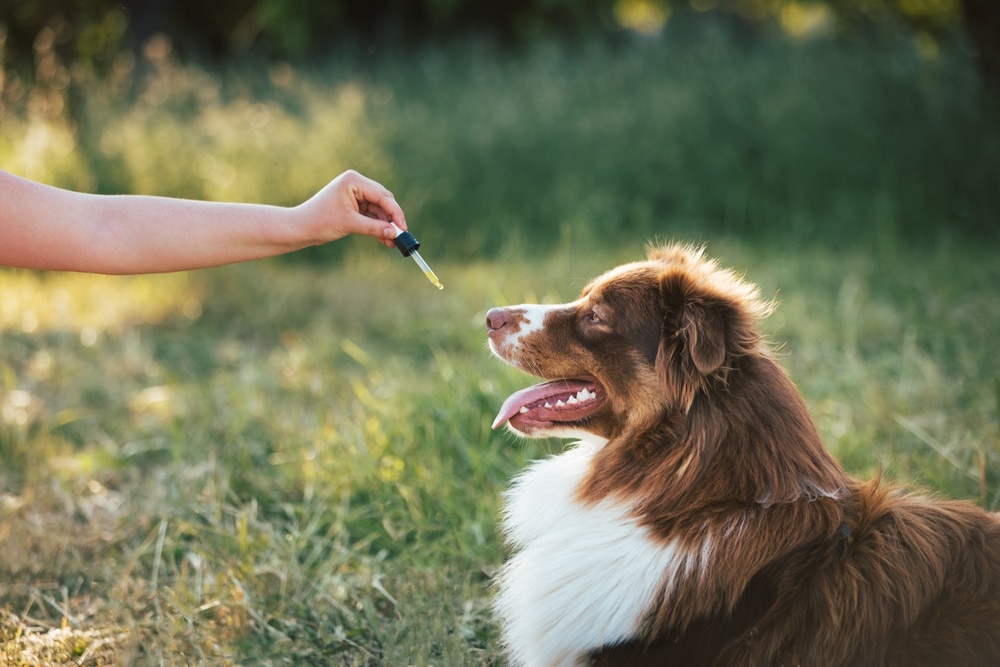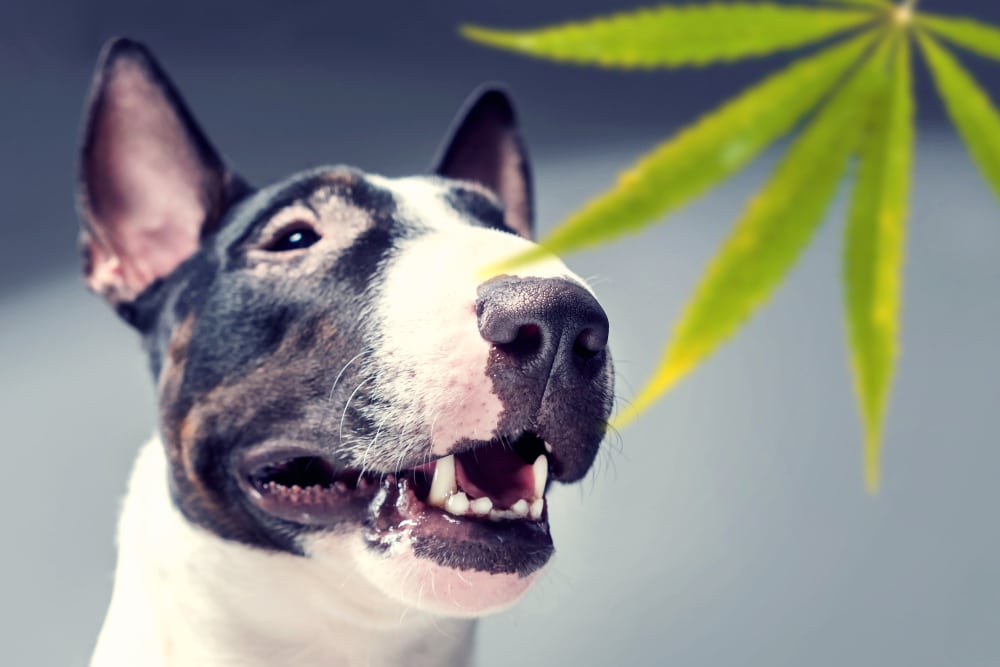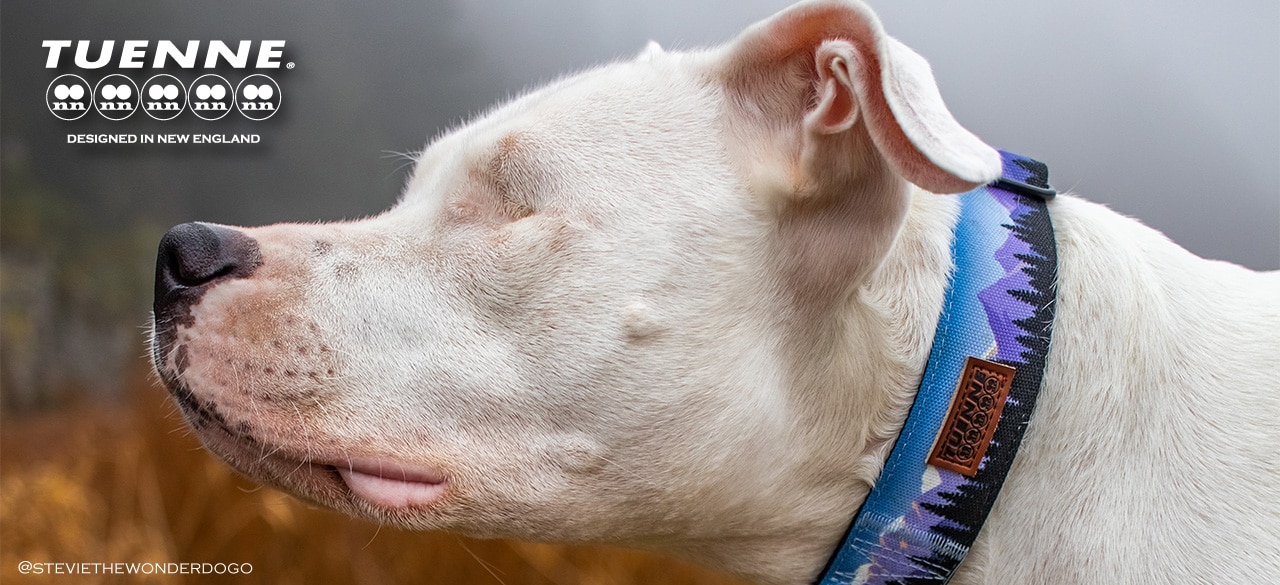You’re slowly walking down the street, trying to coax along your clearly geriatric, arthritic dog behind you, when an unkempt gentleman in dreadlocks and a Grateful Dead shirt approaches you: “Dude, your dog looks like he’s hurtin’. I gave this weed tincture to my old dog, and it got him actin’ like a puppy again! You should really give it a try, man.”
First off, beware of unsolicited advice from strangers. Second, don’t judge a book by its cover, because this guy with the bloodshot eyes and dilated pupils might be speaking some sense. After all, CBD is known as nature’s miracle drug for a reason: it may have the potential to change the lives of people and pets. However, it’s important to do your research so you can make a truly informed decision about whether it’s right for you or your pet.
What is CBD?
Although many terms are thrown out there, CBD is actually the acronym for cannabidiol, a natural substance found in the cannabis plant. This is the active ingredient in many cannabis-oriented pet products, and it does not cause the “high” associated with THC, the acronym for tetrahydrocannabinol, which is a separate compound found in the cannabis plant.
Why should I consider this for my dog?
The evidence is continuing to grow that CBD can be beneficial to people in numerous ways, and so it is not unreasonable to think that it could be similarly beneficial for pets. CBD has been noted, both anecdotally and in some research, to be helpful for a variety of conditions, including but not limited to osteoarthritis, chronic pain, seizures, itchiness, cancer, behavioral issues, and anxiety. If your dog is suffering from one of these conditions, and it is not completely managed with standard treatment options, you may consider adding in CBD as an adjunct treatment.

Photo: Shuuterstock
Is CBD safe?
This is a tough question to answer without extensive research. So far, if used appropriately, it doesn’t typically result in severe or fatal consequences. However, you may have heard reports of pets ingesting marijuana and CBD products — often with extremely high doses and accompanied by toxic ingredients such as chocolate — which can certainly have unwanted consequences. However, if an appropriate product is taken under veterinary supervision, it is likely safe.
I’d like to try it for my dog: What’s my first step in getting some?
The first step should be a conversation with your veterinarian about whether it’s an appropriate option for your dog. Some veterinarians may sell these products in their office. Since CBD for pets is still in its infancy, many vets may not have experience to feel comfortable discussing its nuances. Just like any new drug or treatment on the market, veterinarians may be conservative or wary until there are more trials clearly outlining the indications, benefits, and side effects. If your veterinarian is not comfortable discussing or recommending CBD, perhaps they know of another veterinarian or practice they can refer you to. Many holistically-minded veterinarians can consult with you and provide recommendations they personally prefer or endorse.
Can I order CBD from Amazon?
Legally, sure, you can do that. But as with any product, the adage of “buyer beware” holds true. None of these supplements are federally regulated, which means there may be issues with quality control, storage, shipping & handling, and contamination. Best-case scenario is that your dog benefits from the product, but worst-case scenario is that your dog suffers an adverse reaction from it. So please be aware of the risk you may be taking.
How do I decide which CBD product is right for my dog?
The first place to start may be to ask a reliable friend or family member who has used a particular CBD product that they’ve found to be safe and effective for their pet.
If you don’t know anyone in real life who has used it, then do your reading and research on CBD brands for pets. Be prepared to be bombarded with an overwhelming amount of product advertising and endorsements for these companies. Although few will have it, look for the product having a “National Animal Supplement Council Seal of Quality Assurance.” This is a voluntary third party certificate of analysis that assures ingredients listed on the label, as well as the absence of toxic compounds.
It is likely that the company will have multiple forms of CBD products. In terms of oral formulations, they usually come in the form of oil, treats, or pills. If you have a dog that will eat absolutely anything and everything, then any choice will be fine. The advantage of oil is the ability to start at a low dose and titrate up accordingly. However, the palatability can be off-putting to some dogs. While treats may be more palatable, some dogs may not find them appetizing. Pills can fortunately be snuck into delicious treats such as peanut butter, cheese, etc. At the end of the day, every dog is going to have their own preferences and you need to go through trial and error for what they like. And if they don’t like it, you have to weigh the benefit of the medication with the cost of forcing it down. And sometimes, it’s just not worth it.
Of course, use a critical eye to look at the quantity and quality of consumer reviews for the product. Additionally, look for peer-reviewed research for that product. Companies that produce research will proudly state this on their informational guides, and you may also consider searching for that product in “Google Scholar.”
Why can’t I just use a human one?
While human and pet CBD products are probably pretty similar, companies marketing to humans will not assume any benefits or risk for use in pets, and the appropriate dosing has not been verified.
When should I avoid CBD for my dog?
If your dog has food allergies or food sensitivities, then any supplements should be given with extreme caution, and only under veterinary supervision. In addition, if your dog has immune-mediated conditions such as immune-mediated hemolytic anemia or immune-mediated thrombocytopenia, which can relapse with any drug, then CBD may be something to avoid. There is also some evidence that it can have effects on the liver. Because CBD is relatively new to the market, our current knowledge of its true pros and cons remains somewhat limited. As more research is conducted, there is still potential for further side effects to be revealed. If you have reservations about it or wouldn’t try it yourself, it’s probably not something you want to be offering to your pet.
How do I know if it’s working?
When starting CBD — or any medication, for that matter — try to be objective about its potential benefits. For whatever symptom you are trying to alleviate, it may be helpful to keep a diary or daily score of the symptom. For example, by regularly rating your dog’s anxiety level based on frequency of vocalization or restlessness on a scale from 1-10, you may be able to more accurately judge the results. In addition, monitor and track side effects, which may present as sedation, decreased appetite, vomiting, and diarrhea. If side effects are seen and can be attributed to CBD, then stop the treatment immediately.
It’s important to keep an open mind to the possible benefits of CBD for our dogs, but it’s also important to think critically. You never know, you could find yourself pleasantly surprised, and end up thanking that friendly stranger on the street for his recommendation.
References
AVMA. Cannabis in Veterinary Medicine. Aug 2020. chrome-extension://efaidnbmnnnibpcajpcglclefindmkaj/https://www.avma.org/sites/default/files/2021-03/APH-CannabisResources-Report-20201207.pdf
Greb, A., & Puschner, B. (2018). Cannabinoid treats as adjunctive therapy for pets: gaps in our knowledge. Toxicology communications, 2(1), 10-14.
Kogan, L., Schoenfeld-Tacher, R., Hellyer, P., & Rishniw, M. (2019). US veterinarians’ knowledge, experience, and perception regarding the use of cannabidiol for canine medical conditions. Frontiers in Veterinary Science, 338.
This article does not take the place of professional or medical advice. Always see your veterinarian to diagnose and treat health conditions in your dog. The author and Love, Dog do not accept any liability for any injury, loss, or damage caused by use of the information provided.
subscription
LOVE, DOG
















